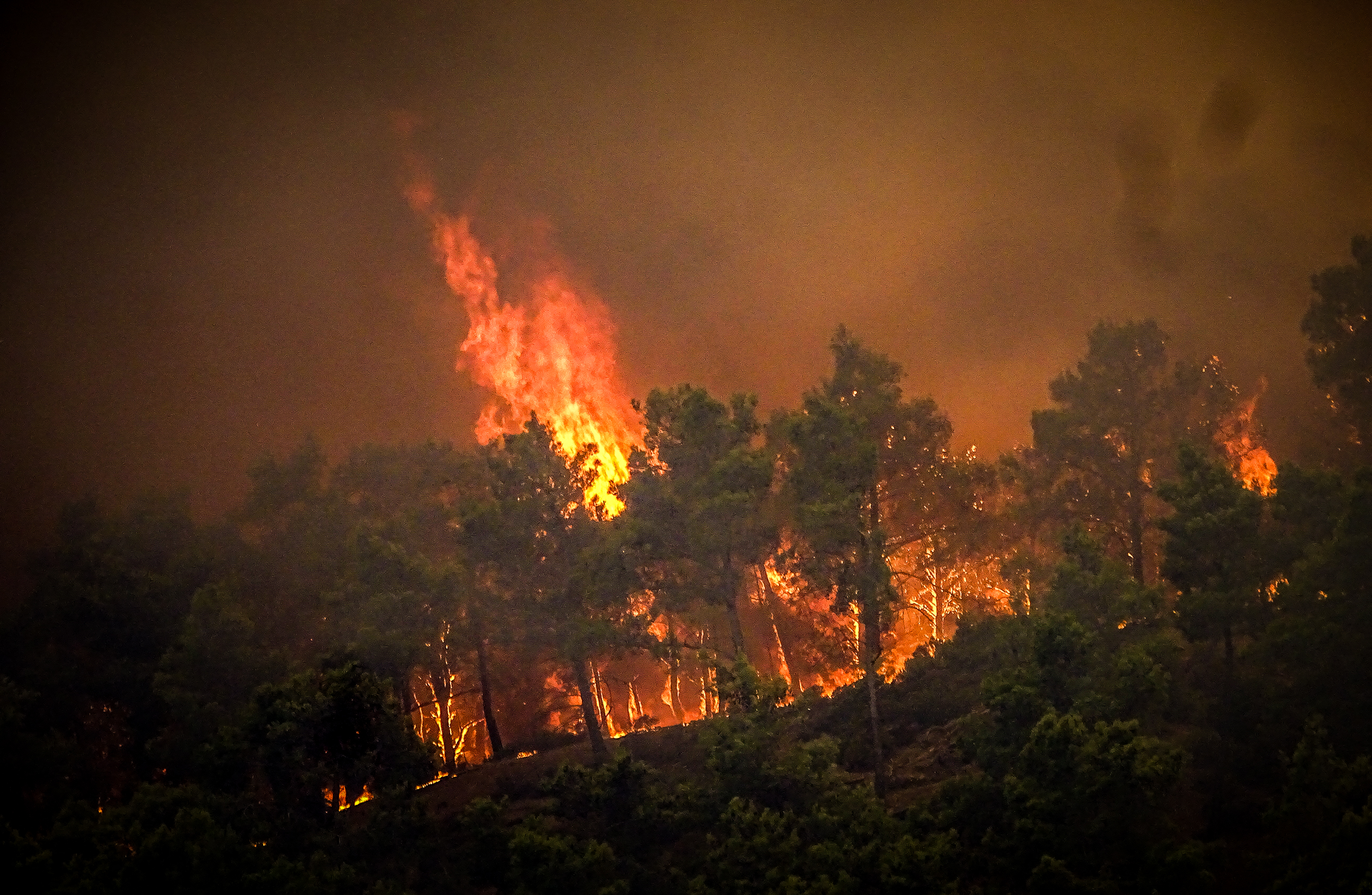 |
| Climate change and destructive management practices are causing forest fires that have become increasingly common over the past few years (Photo: EUROKINISSI / AFP) |
The methodology developed by professor and researcher Fabio Teodoro de Souza, from the Postgraduate Program in Urban Management at the Pontifical Catholic University of Paraná (PUC-PR), using artificial intelligence (AI), %u202% identifies fire outbreaks within 12 hours in advance and with 85% accuracy has become this The methodology has been available since 2015, with tests conducted in Chapada das Massas National Park, in Maranhão, and can be applied anywhere in the country. It took into account satellite fire outbreak data from the Quemadas program of the National Institute for Space Research (Inpe) and meteorological data from the Automatic Network of the National Institute of Meteorology (Inmet).%u202F%u202F
Climate change and destructive management practices are leading to wildfires that have become increasingly common over the past few years. Large fires have been recorded in recent weeks in Canada and in European countries such as Greece, Italy and Spain. But many of these outbreaks can be predicted with the help of technology.
Forest fires are natural phenomena that start due to low air humidity and high temperature. Sousa told the Brazilian News Agency: “These phenomena are monitored through several satellites located in Earth’s orbit and have the ability to record the coordinates of fires when they break out, with a specific diameter, according to the accuracy of each satellite.”
Satellites record the time the fire broke out and the coordinates of the fire location. This happens 24 hours a day.
The article written by researcher PUC-PR was published in the International Journal of Environmental Earth Sciences published by Springer. The method consists of intersecting fire source information with meteorological data from the station located 34 kilometers from Chapada das Mesas National Park. This station records temperature, solar radiation, wind speed, humidity and precipitation. A rainless variant was also created.
protection
According to Souza, the two classifications (forest fires and meteorology) feed an artificial intelligence model that is able to understand these patterns of meteorological conditions and the causes of forest fires. When they learn from this past sample, they are able to generalize to future situations. In other words, they can be used to prevent similar situations.
Diagnosis made in advance allows for disaster mitigation, allowing time to communicate with the responsible institutions so that they can extinguish the fire on site and even take the necessary measures to prevent the fire from occurring. “With this, I can protect Brazilian biodiversity and genetic heritage,” the researcher emphasized.
“Once you determine the likelihood of this fire occurring, you can mobilize the responsible institutions to put out the fire. It is a helpful tool for these institutions. Weather patterns may indicate a fire. “This will be relevant for organizations that monitor and work with this type of incident,” the researcher said.
Although it was tested in Maranhão Park, the researcher reiterated that the methodology can be applied anywhere on national territory. “Unfortunately, the public authorities did not implement the system,” he complains.
“For us, who are researchers in academia and are always looking for solutions that benefit society and, in this case, Brazilian biodiversity, a discovery that was not used was disappointing.”
In the professor’s estimation, there is a lack of a bridge between the university, the government, and public policies to implement the model. It is believed that the government now, under the administration of President Luiz Inacio Lula da Silva, will be able to customize these AI-based methodologies, not only in the matter of natural disasters, but in applications in the field of health. .
Also using artificial intelligence, a researcher in Belgium recently developed a model to predict the outbreak and epidemiology of respiratory diseases. Other models aim to prevent the spread of the Corona virus due to air pollution and weather conditions.
comments
The following comments do not represent the opinion of Diario de Pernambuco; Responsibility of the letter writer.

“Wannabe internet buff. Future teen idol. Hardcore zombie guru. Gamer. Avid creator. Entrepreneur. Bacon ninja.”
